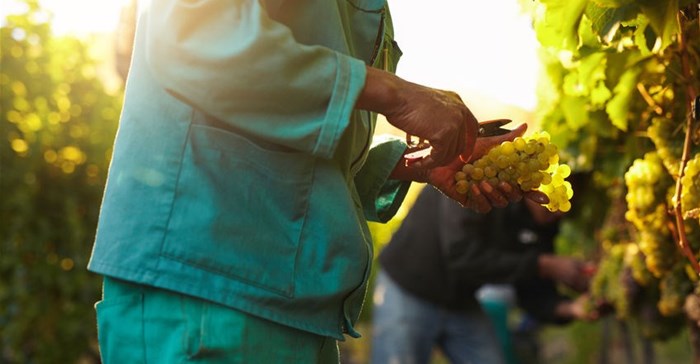ABOU-AL-MATAMIR - Men and women harvest Merlot grapes under the scorching sun in one of Egypt's up-and-coming vineyards, as the Muslim-majority desert country strives to win over international wine connoisseurs.

Image by 123RF
"It's a great story, what we've done with Egyptian wine," said a proud Labib Kallas, as he inspected vines planted in reclaimed desert land north of Cairo on a hot day in July.
For decades a single Egyptian company produced wine that was derided by locals and expatriates alike, but today aficionados say the North African country offers a variety of good white wines. The vineyard that Kallas is visiting - which spans around 170 hectares (420 acres) some 50 kilometres (30 miles) north of the capital - is just one of several providing grapes to two companies now making wine in Egypt.
Since the early 2000s, Kouroum of the Nile - where Kallas heads production - and Domaine de Gianaclis have launched an ambitious quest: to revive the country's wine production by importing grape varieties from France, Italy and also Spain - Merlot, Syrah, Viognier and Vermentino.
Cairo's upscale restaurants and bars usually stock only Egyptian wine. In a somewhat conservative society that mostly views alcohol negatively, authorities impose a prohibitive custom tax of 3,000% on imported wine.
Originally practised in Egypt under the pharaohs, large-scale winemaking was resurrected under British colonialism, before the industry started declining after the army took over the country in a 1952 coup. Today a dozen wine varieties of reds, whites and roses are available on the market.
"We've planted a lot of vines. We pay a lot of attention to quality," said Sebastien Boudry, a French winemaker at Domaine de Gianaclis, near Abu al-Matamir, a village in the Nile Delta 170 kilometres northwest of Cairo. In 2002 the Heineken Group acquired Gianaclis, which had been nationalised in the 1960s.
The climate in Egypt is a challenge to winemakers. They must account for scorching temperatures and compensate for the almost total absence of rain using sophisticated irrigation systems. "When it's over 50 degrees, the vines cannot do much beyond surviving - let alone produce sugars or aromatic substances," said Boudry, who handles 230 hectares of vineyards.
The efforts appear to have been fruitful, with some local wines grabbing international awards. They are "qualitatively good, nice and fresh," said Jean-Baptiste Ancelot, founder of Wine Explorers, the world's first inventory of wine-producing countries.
"Not necessarily great wines, but wines of immediate pleasure," said Ancelot, who visited Gianaclis in 2014. "The whites are the most successful. You can find wines that are both fresh and very fruity - of the exotic fruit type: peach, pineapple, and a little passion fruit."
At Kouroum of the Nile - who say their grapes and wine are organic - the pride of the house is the white Beausoleil. It is the only variety made 100% from Egyptian grapes known as Banati, which in 2016 won a silver medal at the international wine contest in Brussels. The company produces more than two million litres annually: between 700,000 and 800,000 bottles for individuals, with the rest - more than two thirds - distributed in bags-in-boxes to Cairo hotels.
But with few tourists coming to Egypt over the past six years amid the bloody crackdown and jihadist attacks that followed the 2011 uprising, the wine industry is struggling to absorb these shocks.
"Tourism accounts for more than 70% of production. If the tourists do not return, we will have to look into exporting," said Shaker Nawal, marketing director at Kouroum of the Nile.
But it is difficult to imagine the niche industry competing with Western heavyweights - or even those in the region such as Lebanon, which produces more than eight million bottles a year and exports a third of its production.
"This will remain a curiosity wine," said Kallas, a Lebanese living in Egypt. "A Parisian who orders an Egyptian wine at a restaurant rather than French or Spanish wine must have a curious nature." But he thinks the company's wine can penetrate Asian markets.
As he sat enjoying an Egyptian Omar Khayyam rose with friends by the Nile, Dutch ambassador Gerard Steeghs was optimistic. When he first arrived in Egypt, he said he was told: "There is the 'headache wine' and there is the wine that is ok. But there is no good wine." Today "they still have the 'headache wine', but you also have really good wine," he said.
Source: AFP.














